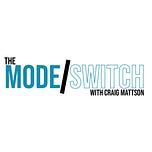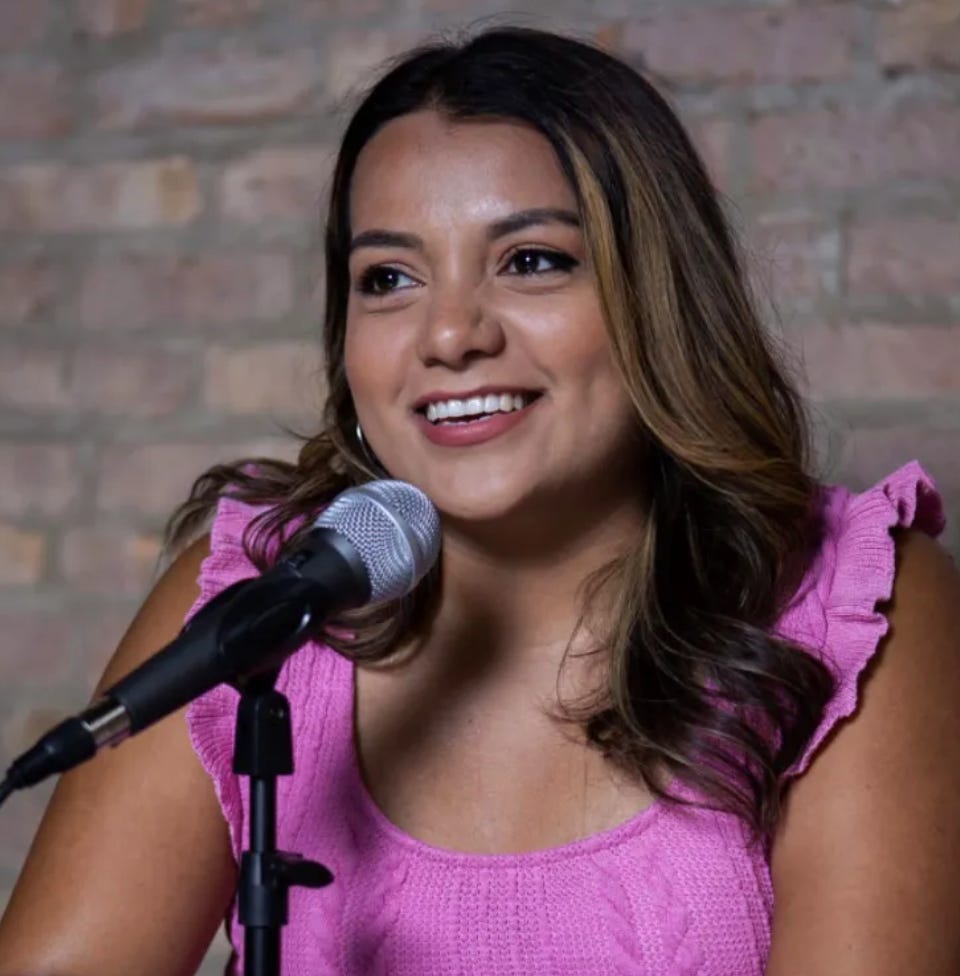Volume 1, Issue 5
Workplace journalism today makes the Great Resignation sound like a Bad Breakup. Americans aren’t just leaving their jobs; they’re divorcing them. Or so suggests Sarah Jaffe’s recent book, Work Won’t Love You Back. You can find similar arguments in the work of writers like Anne Helen Peterson, Malcolm Harris, and Amelia Horgan.
Stop seeking passion in your work, these writers say. Just get the job done, get your check, and go be with someone or something you really care about.
Of course, others concede that breaking up with your job can be harder than it sounds. Rogé Karma writes in the liner notes for a recent episode of the Ezra Klein Show, “Many of us, especially Gen Zers and millennials, have grown up with the idea that work should be more than just a way to make a living; it’s a vocation, a calling, a source of meaning and fulfillment.”
Is there a way to think about our mode of engaging work without sounding like a spouse in an abusive relationship?
Let’s say we’re a documentary production team, on-site, doing a shoot about vocation in America. Let’s say we show up in a quiet graduate seminar at the University of Wisconsin-Madison in 2018, where Rosario Dominguez (pictured above) is finishing up a master’s in journalism. By now, she can write good leads, double-check facts, negotiate a teleprompter, and improvise on-mic responses to impromptu questions. She knows how important objectivity is for keeping journalism truthful and how vital journalism is for holding politicians accountable. She has also learned that, if you want to succeed as a journalist — as a woman of color no less — you need to work hard and give your very self to the work.
Medium shot on her closing her laptop. Close-up on her last smile at her professor. She’s ready for her career in broadcast journalism. Fade to black.
But now, our frame opens on a midnight street in Peoria, Illinois a year later, where Rosario is on the job for WMBD. For most people, this July 4th evening has meant little more than beer, fireworks, brats, and more beer. But Rosario has spent the night chasing crime scenes with her phone, her mic, and her camera. Our documentary should capture footage from one scene in particular, where she learns that the perpetrator is still at large, quite possibly in the neighborhood. (You can do background research on this story by listening to a podcast about it here.) She’s an unacknowledged first responder, eating sandwiches with her left hand, driving with the other, showing up at scene after gruesome scene, trying to cope with the suffering bodies in the street, trying to ignore the fact that she makes less than a McDonald’s shift worker.
What our documentary film has to render is the despair that settles in for Rosario when she realizes that her job just isn’t that into her.
Let’s pan to the streets of south Chicago, where she now holds her second job, this one for Univision, the station she grew up watching. In a way, it’s the job she’s always wanted — she’s close to home and family, but she’s also doing the civic-minded work of journalism. But even here she is finding the reality of television journalism less aspirational than grad school led her to believe. Her producers are preoccupied not with the good gifts of communities, but with the crime narratives that capture attention and garner profits.
Because Rosario was an undergraduate student of mine, I’ve followed her career with pride and shared links to her news stories with my current students. So, I was startled to learn that she’d left journalism. Her experience forced me to rethink the market-driven prospects not only for the news industry but other democratic institutions as well — including the college where my students prepare for careers dedicated to public communication and vocational engagement.
A lot of my professorial work has entailed directing students’ passions towards meaningful work. Rosario’s story in her first two jobs, however, suggested the limits of even the toughest love.
I am glad to add, though, that our workplace documentary need not end there. Rosario is still a digital media storyteller today. But the narratives she’s sharing with her audiences represent a different mode of engaging vocation and work.
As a communications and marketing director at New Life Centers in the Little Village neighborhood of Chicago, she’s circulating stories about hidden resources in her community. As a broadcast journalist, she’d been compelled to tell only one kind of story, a tale that led with blood and violence. But now she tells a neighborhood story that begins with unobvious gifts at large in a community. It’s a resident-led story, in other words, and she herself is one of those residents.
Ask her about her work, and she’ll give you a radiant smile. I think she’d probably say she loves her job, but the bigger vocational gift may be that she and her organization quite simply belong in the community where they find themselves. She talks of being honored by her coworkers, yes. But she’s not central to what’s going on. She’s one part of a vibrant whole.
The more I think about it, the less Rosaro’s story sounds like a third marriage.
In other words, all those writers I mentioned above are just about half right: the romantic frame we often use to make sense of vocation — “Love what you do!” — just isn’t that helpful. But their counter-framework is also problematic, if only because they’re still thinking of jobs as romantic conversations with the universe. Only in these dialogues, we treat work like something you toss off indiscriminately, rather like an affair you fall into despairingly and with no hope of commitment. I’m not sure that a friends-with-benefits arrangement with our jobs is sustainable. Even recent proposals for a four-day work week entail spending more time on our jobs than we do on anything else.
What Rosario’s story suggests to me is that we need a vocational mode that allows for immersive and generous participation without requiring that we say “I do” to the boss, till death or the pandemic do us part. There should be something extravagant about our work, I can’t help thinking. But at the same time, there should be something deeply pragmatic. It’s just that the practical extravagance of vocation isn’t squeezed into an intimate conversation or an indiscriminate fling. Instead, it’s more like a giving circle, like those games we play at Christmas where people find humor and unexpected connection over unobvious gifts. Ideally, our jobs aren’t like partners that we eye in love or contempt, but are instead occasions for looking with others and among others for the hidden resources circulating around our workplaces and their communities.
Who’s Saying Good Stuff
This week is all about the written word, with books from a variety of authors that talk about loving work—even though your job may not feel the same.
Work Won’t Love You Back by Sarah Jaffe
Kids These Days by Malcolm Harris
Lost in Work by Amelia Horgan
X’s and Zs: An Intergenerational Glossary
This section of the Mode/Switch usually features a Gen-Z vocab lesson, but with this week’s guest, we’re going to up our game and go for some bilingual millennial chatter.
Craig: You often do your work at the intersections of Spanish and English. So, talk to me about Spanglish. Does it have any generational differences?
Rosario: My mom—even though she was born in Mexico, she came to the US when she was 20, so she's been here more than half of her life. There were certain words she heard in English and kind of made it a Spanish word. Like “cereal.” They call it conflei, because they're referring to cornflakes. That's the basic, initial cereal that they would buy, because that's what they would buy back in Mexico. So, they just made that up. When I went back to Mexico they're like, what are you talking about?
Craig: Do you have Spanglish that’s more characteristic of Gen-Z?
Rosario: When I think of my generation’s Spanglish, it’s switching back and forth, starting off English and, in mid-sentence, getting into Spanish. I think that's the way with bilingual millennials. That's just how my brain works.
Craig: What would you say is the most useful Spanglish word if I come over and visit with your family?
Rosario: There's the very basic parking. We say parquear. And then, you think, oh, that's not a Spanish word.
Craig: My grandpa was a missionary in Bolivia, and he tells a story about one of his fellow Americans who, when it started pouring, was walking down the street saying, Mucho reino, Mucho reino!
Rosario: People just add in A or an O and make it Spanish. And it's not. Another basic one is party. We say pari. And in Mexico, it's not pari. It's fiesta. We all just know what it means.
Craig: Thanks, Rosario, for being my Spanglish professor, doing a code-switch and a mode-switch this week!
Rosario: No problem.
How do you feel about your job? Do you empathize with Jaffe and Your Job Won’t Love You Back? I’d love to hear from you.
And on another note, follow The Mode/Switch on Instagram for sneak peeks of content and unique insights into these interviews and conversations. - Craig















Share this post